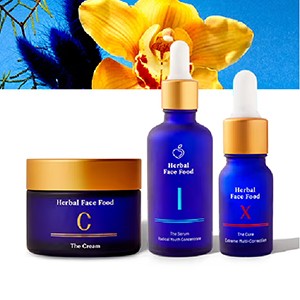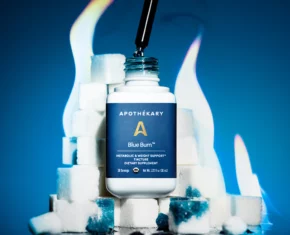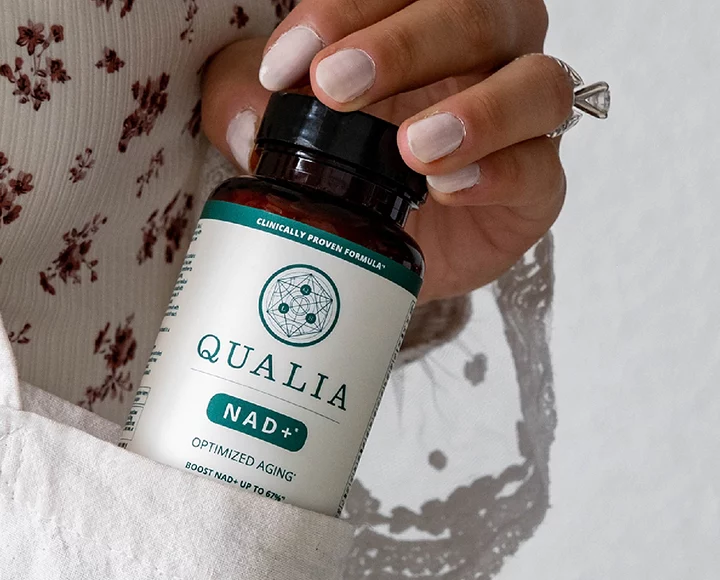We’re used to hearing weird new terms popping up in the wellness world, but what the heck is the pegan diet? Basically, if the best of veganism and the best of Paleo-ism had a baby, this is what we’d get. We’re asking the functional doctor behind this hybrid nutritional philosophy, Dr. Mark Hyman, to explain how it all goes down. Learn about the pegan philosophy below, then explore what to eat (and what to avoid) in today’s other story.
As a doctor, it is my job to figure out the best way to keep my patients healthy. We now know that food is medicine, perhaps the most powerful drug on the planet, with the power to cause or cure most disease. If food is more than just calories, if food is information that controls every aspect of our biology and health, then I better know what to advise people to prevent, treat and even reverse chronic disease.
So the fundamental question of our time – given the cost of chronic disease caused mostly by what we eat will cost our global economy $47 trillion over the next 20 years and cause over 50 million preventable deaths a year – is this: What should I eat to feel good, lose weight and get and stay healthy?
Looking at the research, it is easy to get confused. Vegan diet studies show they help with weight loss, reverse diabetes and lower cholesterol. Paleo diets seem to do the same thing. So should you be shunning animal foods and eating only beans, grains and veggies, or should you eat meat and fat without guilt and give up all grains and beans?
Essentially, each camp adheres to their diet with near religious fervor. And each can point to studies validating their point of view. We call this cherry picking. After reading dozens of studies on vegan and paleo diets, even I could get confused. But I don’t, because I read between the lines not just the headlines. I read the methods and analyze the actual data to learn what the studies actually demonstrate.
The problem with nutrition research is that most of it relies on large studies of populations and their dietary patterns obtained mostly through dietary questionnaires or 24-hour dietary recall.
These type of studies are further complicated because it is very hard to tease out the factors that matter. For example, when Asians move from Asia to the U.S., they eat more meat and have more heart disease and cancer, but they also consume far more sugar. So is it the meat or is it the sugar? Hard to know. These types of population studies also cannot prove cause and effect, only show correlation.
Many experimental studies on vegan or paleo diets, which should give more direct evidence of cause and effect, often have only small numbers of people in the study, making it hard to draw firm conclusions. Even worse is the diets they use for comparison (the control group) are not ideal alternative diets. Comparing a vegan diet of chips, Coke, bagels and pasta to a paleo diet of healthy veggies and grass-fed meat won’t be very helpful, nor would comparing a paleo diet of feedlot meat, bologna and no fresh veggies to a whole-foods, low-glycemic vegan diet.
What Is The Pegan Diet?
I vote for being a pegan, or paleo-vegan, which is what I have chosen for myself and recommend for most of my patients. Keep in mind that most of us need to personalize the approach depending on our health conditions, preferences and needs.
What is a pegan? Well, since I just made it up, I guess it’s up to me to define. Let’s focus first on what is in common between paleo and vegan (healthy vegan), because there is more intelligent eating has in common than there are differences. They both focus on real, whole, fresh food that is sustainably raised.
Here are the characteristics of a healthy diet everyone agrees on:
Very low glycemic load. Low in sugar, flour and refined carbohydrates of all kinds.
Eat lots of plants. The deeper the colors, the more variety, the better. This provides a high phytonutrient content protective against most diseases. (Although the paleo camp recommends lower glycemic fruit such as berries.)
Buy as clean as can be. Low in pesticides, antibiotics and hormones and probably no or low GMO foods. No chemicals, additives, preservatives, dyes, MSG, artificial sweeteners and other “Franken-chemicals” that you would never have in your pantry.
Get good quality fats. Omega-3 fats for all. And most camps advise good quality fats from olive oil, nuts, seeds and avocados. Although some, such as Drs. Esselstyn and Ornish, still advise very low-fat diets for heart disease reversal.
Eat enough protein. Adequate protein for appetite control and muscle synthesis, especially in the elderly.
Source Responsibly. If animal products are consumed they should be sustainably raised or grass-fed. If you are eating fish you should choose low-mercury and low-toxin containing fish such as sardines, herring and anchovies or other small fish, and avoid tuna, swordfish and Chilean sea bass because of the high mercury load.
The Grey Areas
Dairy | Both the paleo and vegan camps shun dairy and for good reason. See my blog on Got Proof about the problems with dairy in our diet. While some can tolerate it, for most it contributes to obesity, diabetes, heart disease and cancer and may increase (not decrease) the risk of osteoporosis.
Grains | For millions of Americans, gluten creates inflammation, autoimmunity, digestive disorders and even obesity. But do all grains cause a problem? Even though we started consuming grains recently in our evolutionary history, they can be part of a healthy diet, but not in unlimited amounts.
All grains can increase your blood sugar. And if you eat any flours made from grains, you might as well be drinking a soda. Stick with small portions (1/2 cup at a meal) of low-glycemic grains like black rice or quinoa. That said, for Type 2 diabetics wanting to get off insulin and reverse their diabetes and those with autoimmune disease, a grain- and bean-free diet could be a good experiment for a month or two to see how it impacts health.
Beans | Beans are a great source of fiber, protein and minerals. But they do cause digestive problems for some. If you are diabetic, a mostly bean diet can trigger spikes in blood sugar. Again, moderate amounts are okay – meaning up to one cup a day. Some are concerned that beans contain lectins that create inflammation or phytates that impair mineral absorption.
Meat | Here’s the sticky point. All meat is not created equally. Is it feedlot beef that has more palmitic and myristic acid that raise cholesterol and increase inflammation, or is it grass-fed beef that has more cholesterol neutral stearic acid and contains protective omega-3 fats and vitamins A and D that raise glutathione and other antioxidants? Some studies show meat increases heart disease and death rates, but others show the opposite. In truth, it depends on the quality of the study, but the evidence in my mind is trending toward meat not being linked to death or heart attacks for the reasons I explained earlier: There may have been other reasons excluded from the analysis in the meat eaters – such as they were higher sugar consumers, they were more sedentary and they were more likely to smoke and drink.
Eating sustainably raised, clean meat, poultry and lamb and other esoteric meats such as ostrich, bison or venison as part a healthy diet is not likely harmful and is very helpful in reducing triglycerides, raising HDL (or good cholesterol), lowering blood sugar, reducing belly fat, reducing appetite, raising testosterone and increasing muscle mass. On the other hand, eating a lot of meat puts pressure on the planet – more water use, more climate change and more energy inputs. Eat meat as a side dish or condiment and only consume grass fed and sustainably-raised.
Eggs | For years we were taught that cholesterol is bad, that eggs contain cholesterol, so they must be bad; so we all suffered through years of egg white omelets, leaving the vitamins, nutrients and brain fats like choline in the garbage. Now eggs have been exonerated and are not associated with increased risk of heart disease or any impact on cholesterol. They are a great low-cost source of vital nutrients and protein.
Fish | If you are worried about mercury in fish (and you should be), then choose small, omega-3 fat-rich fish such as sardines or wild salmon. If you are a vegan and don’t want to eat anything with a mother for moral or religious reasons, then that’s perfectly okay. But it’s critical to get omega-3 fats, and not just ALA (or alpha linolenic acid) found in plants. You need pre-formed DHA, which is what most of your brain is made from. The good news: You can get it from algae. Everyone needs vitamin D3 (unless you are life guard or run around naked south of Atlanta for at least 20 minutes a day, all year long). And omega-3 fats are hard to get for most. Supplements (or a regular sardine diet) are essential. And for vegans, vitamin B12 is also critical.
Does The Pegan Diet Work?This way of eating makes the most sense for our health and the health of our planet. It is sustainable and kinder to animals.
This is a complicated story with many characters, opinions and beliefs – all arguing their points with a mix of studies showing a variety of conclusions. My goal is to focus on biology – how food affects us through human and animal experimental studies, which prove cause and effect – and not rely solely on studies of population habits, which can often mislead and confuse because we can’t draw cause-and-effect conclusions from them.
We can try to focus on what we know and customize it based on our preferences and beliefs. But we should leave religion out of nutrition while respecting individual choices. And yes – vegans and paleo folks can be friends!
How do I eat? After researching nutrition for 30 years and analyzing thousands of scientific papers and treating tens of thousands of patients with food, I vote for being a pegan!
What does the pegan diet look like daily? Learn exactly what to eat and what to avoid with this guide.
The Chalkboard Mag and its materials are not intended to treat, diagnose, cure or prevent any disease. All material on The Chalkboard Mag is provided for educational purposes only. Always seek the advice of your physician or another qualified healthcare provider for any questions you have regarding a medical condition, and before undertaking any diet, exercise or other health related program.












